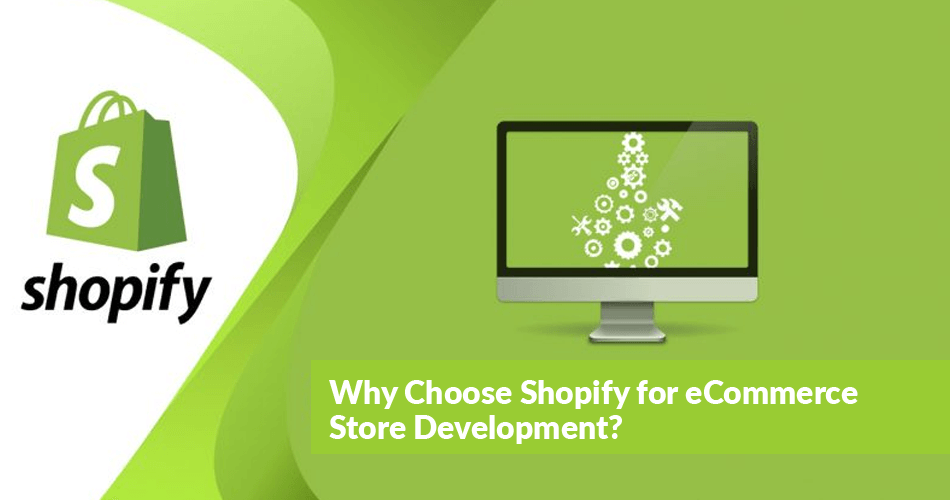Are you an aspiring entrepreneur or a business owner looking for the perfect platform to set up your online store? In the ever-evolving world of e-commerce, choosing the right platform is crucial to your success. Among the many options available, Shopify has emerged as a standout choice for businesses of all sizes. With its user-friendly interface, powerful features, and unmatched versatility, Shopify has become the go-to platform for entrepreneurs around the globe. In this article, we’ll explore the top 11 reasons why using Shopify in 2023 is a smart decision for your business.
Introduction: The Power of E-Commerce Platforms
In today’s digital era, having a strong online presence is a must for any business. E-commerce platforms provide the foundation for creating and managing your online store, allowing you to seamlessly showcase your products, process transactions, and connect with customers. Shopify is a leader in the e-commerce industry among the various options available. Hiring Shopify developers will provide you with tremendous benefits for your e-commerce business.
This article will explore why Shopify stands out as a top choice for entrepreneurs and small business owners. Shopify removes many of the headaches associated with setting up an online store. It offers simplicity without sacrificing key e-commerce features and customization options. We will cover the benefits of Shopify regarding ease of use, design flexibility, scalability, marketing tools, shipping and payment processing, security, app ecosystem, customer support, and more.
Top 11 Reasons to Choose Shopify for Your E-commerce Business
Starting an online e-commerce business can be an exciting yet challenging task. With so many e-commerce platforms, deciding which solution is right for your business is tough. Shopify has become one of the most popular options for aspiring entrepreneurs. This intuitive platform makes it easy to create a beautiful online store and manage day-to-day operations. Those without technical expertise can launch a Shopify store and start selling quickly.
Whether you are just starting or looking to grow an existing business, Shopify offers an all-in-one selling solution across multiple sales channels. By outlining Shopify’s top features and capabilities, this article will demonstrate why it is a compelling platform for your online business. The aim is to help you make an informed decision to focus on your products, brand, and customers instead of tech hassles.
1. User-Friendly Interface:
Setting up an e-commerce store can be an exciting task, especially for those who are not tech-savvy. Shopify addresses this concern with its user-friendly interface, making it easy for beginners to create and manage their stores without extensive technical knowledge.
2. Wide Range of Beautiful Templates:
First impressions matter, especially in the world of online shopping. Shopify offers a diverse collection of professionally designed templates that can be customized to match your brand’s aesthetics, helping you create a visually appealing and captivating online store.
3. Powerful E-Commerce Features:
Shopify provides comprehensive e-commerce features, including inventory management, order processing, secure payments, and more. These features streamline your business operations and enhance the shopping experience for your customers.
4. Scalability and Growth:
As your business expands, your e-commerce platform can accommodate your growth. Shopify offers scalable solutions that seamlessly handle increased traffic, ensuring a smooth shopping experience during peak times.
5. App Store for Extended Functionality:
To cater to specific business needs, Shopify has an extensive app store offering various plugins and integrations. The app store covers you whether you need advanced analytics, marketing tools, or shipping solutions.
6. Mobile Responsiveness:
A mobile-responsive store is crucial, with a significant portion of e-commerce shopping happening on mobile devices. Shopify’s templates are developed to be responsive to ensure your store looks and runs flawlessly on smartphones and tablets.
7. SEO-Friendly Structure:
Search engine visibility is vital for attracting organic traffic to your online store. Shopify is built with SEO best practices in mind, providing features like customizable meta tags, automatic sitemaps, and clean URLs to improve your store’s search engine rankings.
8. 24/7 Customer Support:
Running an online store means you need reliable support whenever issues arise. Shopify offers 24/7 customer support through various channels, ensuring you’re never alone in managing your e-commerce business.
9. Secure and PCI Compliant:
Safety is an utmost priority when handling customer data and payments. Shopify is Payment Card Industry Data Security Standard (PCI DSS) compliant, providing a secure environment for your and your customers’ sensitive information.
10. Integrated Payment Gateway:
Shopify Payments, the platform’s integrated payment gateway, simplifies the checkout process for customers and eliminates the need for third-party payment processors, streamlining transactions and reducing potential friction points.
11. Abandoned Cart Recovery:
Cart abandonment is a very common problem in e-commerce. Shopify offers automated abandoned cart recovery emails, encouraging customers to complete their purchases and helping you recover potentially lost sales.
Comparison with Woo-Commerce & BigCommerce
While several e-commerce platforms are available, Shopify stands out due to its ease of use, powerful features, and comprehensive support. Competitors like WooCommerce and BigCommerce offer advantages, but Shopify’s all-in-one solution, user-friendly interface, and scalability set it apart.
Shopify is the best e-commerce platform because it offers a balance of simplicity, customization, and integrated features. Shopify has an easy-to-use interface that allows store owners to instantly set up an online store without knowing the code. At the same time, Shopify offers powerful customization through themes, apps, and its Liquid templating language. Shopify also has many built-in features like shipping, payments, taxes, and reporting, making running an online business easier.
In comparison, BigCommerce is also easy to use but lacks the customization options of Shopify. The themes and apps on BigCommerce are more limited. BigCommerce does have advanced built-in features like automated abandoned cart recovery. However, Shopify has more app integrations overall.
WooCommerce is the most customizable option as a WordPress plugin. But it requires dealing with WordPress development and maintenance. WooCommerce is less user-friendly for e-commerce beginners. It also lacks some of the integrated features offered by Shopify and BigCommerce.
Shopify
- Shopify makes it easy for anyone to set up an e-commerce store through their intuitive dashboard and themes—no coding knowledge is needed.
- Offers a full-featured free trial to test out the platform. Paid plans start at $29/month.
- Has an app store with thousands of integrations for extra features like email marketing, accounting, shipping, etc.
- It lets you sell in multiple currencies and languages. Supports dropshipping.
- Includes secure hosting on Shopify servers to help improve page load speeds.
- Shopify Payments handles credit cards, and Shopify Shipping provides discounted rates.
- Provides 24/7 customer support via live chat, email, and phone.
BigCommerce
- BigCommerce also has an easy-to-use dashboard to create online stores without coding.
- Free trial available. Paid plans start at $29.95/month.
- It has fewer app integrations than Shopify but offers core features like abandoned cart recovery.
- Includes hosting and supports multi-currency selling.
- Integrates with major payment gateways like PayPal. ShipperHQ powers shipping rates.
- Offers 24/7 customer support by phone and live chat.
WooCommerce
- As a WordPress plugin, WooCommerce provides complete design flexibility but requires WordPress knowledge.
- Completely free to use. Just pay for WordPress hosting. Paid extensions are available.
- Access to all WordPress themes and plugins allows limitless customization and features.
- Self-hosted on your servers so you manage hosting and speed optimization.
- You handle integrating payment gateways and shipping solutions into WooCommerce.
- Support depends on the developers/agencies that build the store.
Overall, Shopify strikes the best balance by being easy to use yet highly customizable. The all-in-one platform offers everything a small business needs to start selling online and scale up operations. Shopify reduces development costs compared to solutions like WooCommerce. For these reasons, Shopify remains the most popular and recommended e-commerce platform for most online retailers.
Conclusion
Shopify is the easiest platform for e-commerce beginners who want a robust hosted solution. BigCommerce is similar but has fewer apps and customization options. WooCommerce provides the most flexibility yet requires more development work and maintenance.
In the ever-evolving landscape of e-commerce, picking up the right platform can make all the difference in the success of your online business. Shopify’s user-friendly interface, powerful features, scalability, and extensive support make it a top choice for entrepreneurs in 2023 and beyond. Whether you’re just starting or looking to take your existing business to the next level, Shopify provides the tools you need to thrive in the competitive online market.


